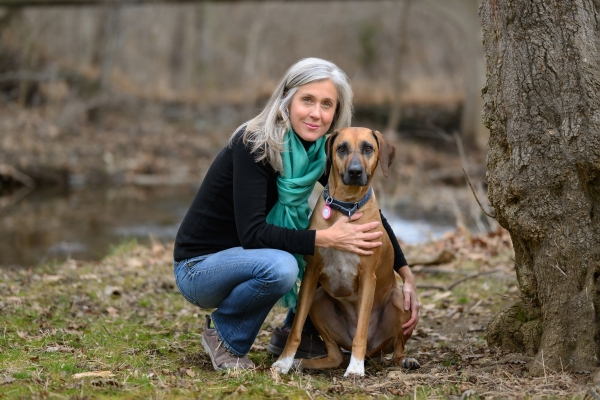Meet a Colleague: Melissa Kerin Melissa Kerin is an associate professor of art history.
Q. How long have you worked at W&L?
I started in 2011, so this is year number 12.
Q. What courses are you teaching this term?
A 300-level seminar on Tibetan and Himalayan art and material culture, and a 100-level course titled Questions of Ownership, which investigates issues of looting and illegal acquisition of cultural heritage.
Q. What is the most satisfying aspect of teaching?
I’d have to say it’s the unexpected, interactive moments of exploration and discovery with students. There have been many times when questions and discussions have deeply informed and changed the trajectory of a course.
Q. What advice do you have for students (or parents)?
Take full advantage of being part of this elite liberal arts environment and all it has to offer. Build relationships with your professors. Take classes that not only deepen your established interests, but expose you to new ideas, topics, fields. Study abroad for a long semester! There is so much to gain from that. Lastly, be willing to be surprised. Students often come in with a plan, which is good, but I try to emphasize that there can be surprising points of connection between and among studies/disciplines that can fruitfully yield new perspectives, areas of investigation, and possible work choices.
Q. Where did you grow up?
Near New Haven, Connecticut.
Q. When you were a child, what did you want to be when you grew up?
A bunch of things. I wanted to be an astronomer, a tap dancer (with Fred Astaire and Gene Kelly, and no, I’m not that old. But, I loved all those old movies that came on Saturday afternoons). Had I known one could be a historian, I would have definitely wanted to be that. I was drawn to history early on.
Q. Who inspired you to teach? What about them inspired you?
I’ve been so fortunate to have had beautifully inspiring teachers. I went to a magnet high school for the arts in New Haven (Educational Center for the Arts) and my teacher Mark Wade taught his theater students to bring it all – all of who you are – to the moment and own it with love and integrity. Judy Dworin at Trinity College taught me that the best courses are those when the professor is exploring and creating alongside students. Charlie Hallisey from Harvard demonstrated that personal testimony and storytelling are some of the most powerful pedagogical tools we have.
Q. What is the most adventurous thing that you have ever done?
At 19 years old, I traveled around the country on greyhound buses for two months by myself and a backpack of books. It got dodgy at 3 a.m. in some of those bus stations! The last 15 years have been full of adventures with my daughter, Elsa. These experiences include ascending 16,000-foot mountain passes in the western Himalaya, snorkeling the Barrier Reef and baking crazy cakes.
Q. What is your favorite podcast?
“Whose Heritage” created by my student, P.T. Meadors!
Q. What book are you reading now?
My colleague, Emma Steinkrause, and I share a love of the mushroom world. She lent me “Entangled Life: How Fungi Make Our Worlds, Change Our Minds, and Shape Our Futures.” I’m loving it.
Q. If you could have coffee with one person, who would it be?
I’d love to talk with Machig Labron, a wild ascetic, who in the 12th century developed a profound practice that significantly shaped Tibetan Buddhism. We’d have butter tea (not coffee) in one of the caves she meditated in. I’d have a lot of questions for her.
Q. If you could live anywhere, where would you build your dream home?
Western Himalaya in India or somewhere in Styria, Austria.
Q. What is your desert island food?
I’m going a bit literal with this. By desert, I’m thinking high-altitude desert in the Himalayan region, and while there, I always have a supply of Hobnobs with peanut butter and chocolate.
Q. Tell us something most people don’t know about you.
My first crush was when I was in fifth grade on Nathan Hale. As in Nathan Hale, the 18th century patriot soldier of Connecticut who was hanged by the British. I memorized the words he supposedly said before he was publicly hanged. “I regret that I have but one life to give to my country.” That blew me away. See, that’s the historian thing showing up early.
Q. What is your secret talent?
Being able to cook a meal with little forethought and very few ingredients. I also think this is called motherhood, but I’ll say it is one of my secret talents.
 Melissa Kerin, associate professor of art history
Melissa Kerin, associate professor of art history
You must be logged in to post a comment.